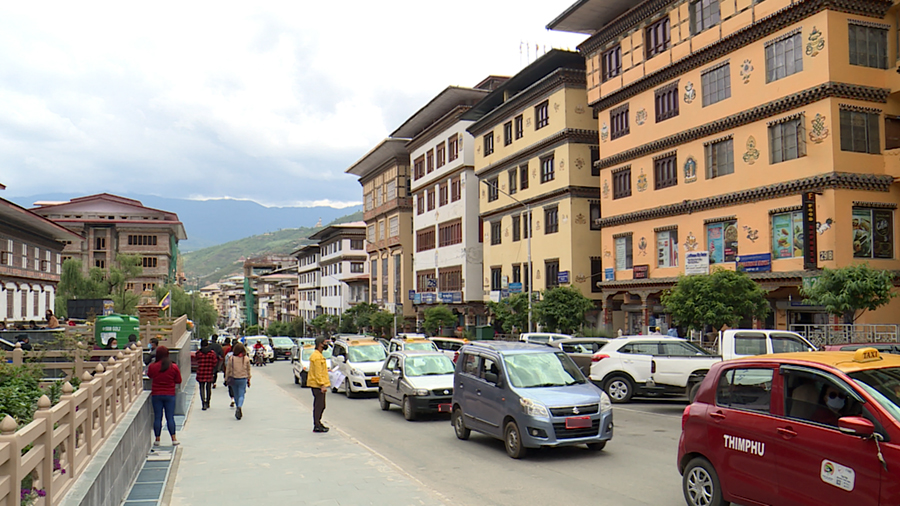
A committee has been formed to investigate the recent surge in vehicle prices following the lifting of the vehicle import moratorium last week. The committee includes representatives from the Royal Monetary Authority, the Department of Trade, the Ministry of Finance, and the Competition and Consumer Affairs Authority. People are reacting to the new vehicle prices, which have escalated significantly.
In April 2022, a Creta 1.5 petrol EX was sold at about Nu 1.3 M.
After the previous government revised taxes in 2022, increasing sales tax from 45% to 60% and green tax from 10% to 20%, the price rose to around Nu 1.7 M.
Today, the price has escalated further with the same car now costing more than Nu 1.8 M.
According to car dealers, a significant rise in prices is seen only in cars with higher cubic capacity and models with new variants.
They said many people are unaware of the increase in taxes as the tax amendment came a few months after the vehicle import moratorium was announced.
Pema Loday, Senior General Manager of Bhutan Hyundai Motors said “When I just checked my record, I have found out that once the moratorium was issued in August, I think people are comparing the prices before the moratorium and the present price. When the moratorium was issued, the finance ministry announced some revision, not only vehicle but overall products. So in that, our vehicles, from 1200 to 1500 cc were affected.”
Tshering Wangchuk, CEO of State Trading Corporation of Bhutan said “when it comes to the price of a vehicle, the major components are the cost of the vehicle in the country of origin. And the other thing is the taxes here and in between, there are certain variables like transportation, shipping, clearing and forwarding in India, and then our margin. So I would say the main two components are the price in the country of origin and the taxes here. And we have seen tremendous change in certain models, not all.”
On social media, some people have blamed the government’s tax changes for rising vehicle prices, while others argued that car dealers are compensating for losses from the past two years.
The finance minister who took to social media a few days ago saying that the price hike is not due to taxes has now clarified that the prices have significantly changed due to the tax revision that was introduced in November 2022.
Lekey Dorji, Finance Minister said “people have been complaining that the government has increased the tax for imported cars. I even uploaded it on Facebook saying that is not the case and that our government did not increase the tax. But I was not really aware. After a thorough discussion, I learned that in November 2022, the previous government revised the Tax Act of Bhutan. For instance, in case of 1500 cc vehicles, the government has increased the green tax by around 5 per cent. For 1500 to 1799 cc vehicles, the sales tax has increased by around 10 per cent and there is five per cent green tax, which comes to 15 per cent in tax. The tax has been increased to as high as 30 per cent including customs duty, sales tax and green tax.”
While the minister acknowledged that the price change is due to factors such as profit margins, taxes, inflation, shipping charges, and foreign exchange rates, he also mentioned that a committee has been formed to investigate the rise in price especially the profit margin calculations of car dealerships.
“We at the finance ministry has formed a committee and is looking at the increased prices. And within this one week, we will come up with a report and present it to the public.”
However, car dealers like STCBL also said that government regulating their profit margin will not set good precedent.
Tshering Wangchuk, CEO of the State Trading Corporation of Bhutan said “I have heard and seen on social media that may be the government should step in to regulate the margin of the dealers. I think this is not a good trend because you have to leave certain things to market forces. Yes, for essential commodities, there is something called MRP and you regulate the prices but vehicle is not essential commodity, it is a luxury and people have the choice.”
While the government investigates the vehicle price increase, dealers suggest that only changes in tax could lower prices.
Samten Dolkar
Edited by Kipchu







